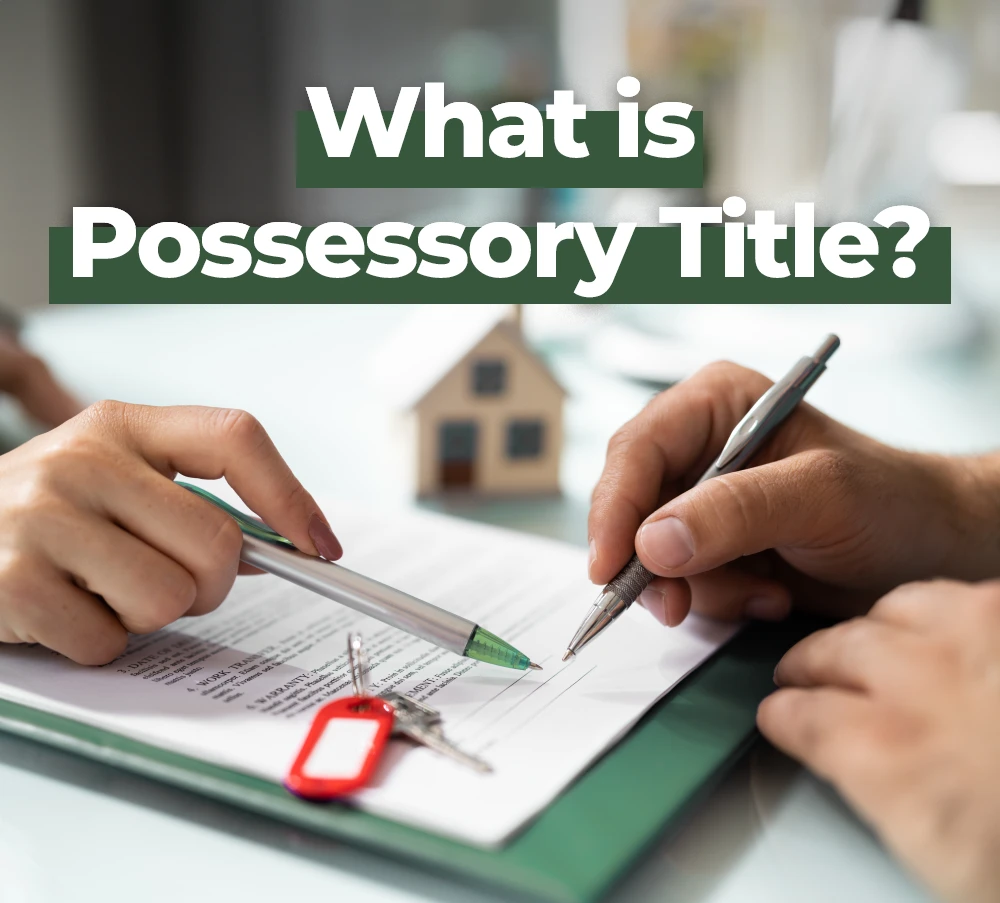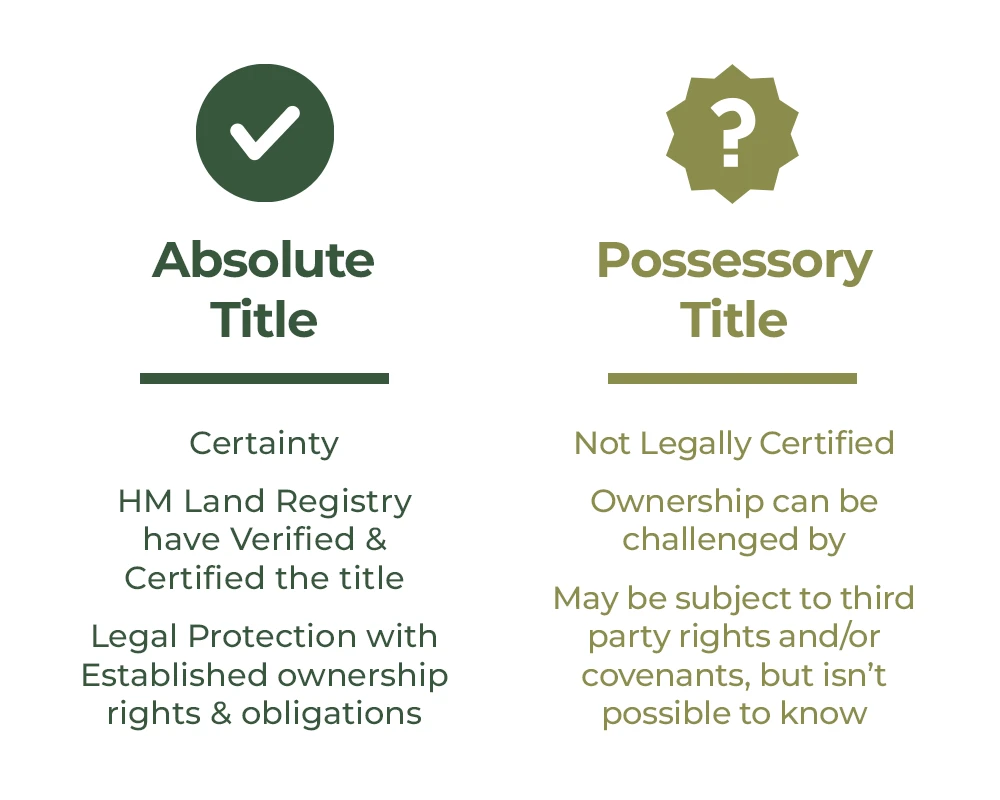
As featured on our 4th April Auction
Bickley Cottage, 104 Abbots Road, Hanham, Bristol, South Gloucestershire BS15 3NR
If you have stumbled across this page in your search for trying to find out more on a property with possessory title, then we are here to help. We should point out that this is purely a guide on the relevant points and should not be relied upon as legal advice. You must take advice from your own conveyancer before deciding to purchase.
When registering a property with HM Land Registry, under the Land Registration Act 2002, there are two commonly assigned types of title and it’s important to understand the differences between them.

Absolute Title
This is the best type of title and typically the most granted class. Absolute title provides certainty regarding ownership, with HM Land Registry having verified and certified the title. Thus, ensuring legal protection and is supported by the official title deeds, which clearly establish the ownership rights and obligations.
Possessory title
Possessory Title is where you are considered the owner of a property but have been unable to provide documentary evidence to HM Land Registry who cannot legally certify the title in the normal way. It is quite common where the original paper deeds have been accidentally destroyed or lost, or where a property has been passed down through the generations and there are no deeds or proof of the original conveyance. Possessory title can also be obtained through adverse possession. This is when a person may acquire legal ownership based on continuous possession or occupation without permission.
There are two very important differences between absolute and possessory titles:
- Possessory title can be challenged by someone who claims to have a better title to the property i.e. with an Epitome of Title; and
- the property may be subject to third-party rights and/or covenants but it is not possible to know what these are as the deeds may have been lost.
Can the tile be upgraded?
As the registered owner of a property, you can apply to HM Land Registry to have your title upgraded. You must wait 12 years from the original registration before you can make such an application. There is no requirement to provide any additional evidence to support such an application. The fact that the property has been registered for the 12-year period without challenge is sufficient.
Can you obtain a mortgage on a property with Possessory Title?
The simple answer is YES, but it is heavily caveated! Ultimately a cash purchase may be the only way forward as there are some important considerations to understand:
- Risk Assessment: Banks and lenders evaluate the risk associated with lending against a property with possessory title. Since possessory title lacks the full legal protection of absolute title, it is generally considered riskier. However, each bank has its own policies and risk tolerance. It will be quite common for a property with Possessory Title to be sold with an indemnity policy. Which, to some extent, may help mitigate the risk. When buying at auction we recommend you look at the legal pack to see if a draft indemnity policy has been included. Irritatingly the auctioneer will be unable to advise one exists as it could invalidate the policy.
- Less Favourable Lending Terms: Some banks may be willing to provide mortgages for properties with possessory title. But, the terms may be less favourable. You might encounter:
- Higher Interest Rates due to the increased risk
- Lower Loan-to-Value (LTV) Ratio: Banks may limit the loan amount based on a lower percentage of the property’s value.
- Additional Documentation: You might need to provide additional evidence of your right to occupy the property.
- Legal Advice: It’s crucial to seek legal advice before proceeding. An experienced conveyancer or solicitor can guide you through the process, assess the risks, and help you understand your rights and responsibilities.
Remember that each situation is unique, and it’s essential to consult with a professional to explore your options and navigate the complexities of property ownership and mortgages.
Contact us for more information.